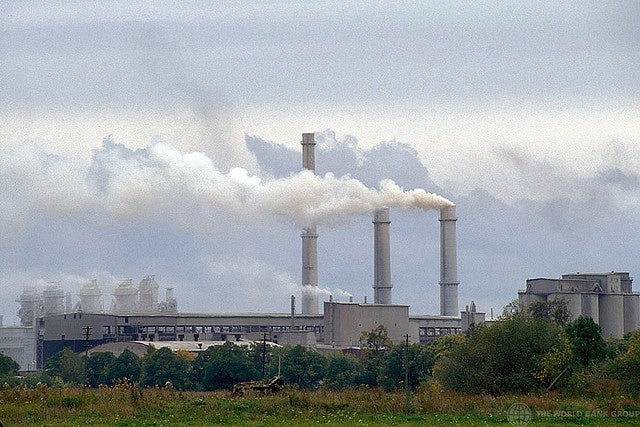
Tens of millions of people are already feeling the effects of climate change—and the poorest among us feel them the most. Inaction could push 100 million more people into poverty by 2030.
It could also have devastating effects on human health. The evidence is clear that we need to do much more to integrate climate-smart development into our planning, especially in health.
Climate change undermines the aspiration of universal health coverage: our ability to expand access to quality health care and ensure that no one falls into poverty getting the care they need. It also disrupts systems, enables disease transmission and worsens non-communicable diseases.
Warming of 2-3°C could increase the number of people at risk of malaria by 2030 by up to 5%—or more than 150 million people. At the same time, diarrhea rates could increase by 10% in some regions. And neglected tropical diseases—such as dengue, leishmaniosis and chikungunya—could see their footprints increase, since they thrive mainly among the world’s poorest-populations and are sensitive to climate conditions.
We’ve seen what devastating outbreaks—like the Ebola epidemic in West Africa, the MERS outbreak in Asia and the Zika virus spread in the Americas—can do. A recent report by the International Research Institute for Climate and Society suggests that climate is an important driver of many vector-borne diseases, such as Zika. Both high rainfall and drought years may increase breeding sites, and warming temperatures increase the development rates of vectors and viruses. Climate information can help determine the most effective timing and targeting of mosquito control interventions.
We have proof that climate-smart investment works. After Europe faced a crushing heat wave in 2003 that claimed more than 30,000 lives, most European countries put in place early warning systems. When a heat wave hit again three years later, the death rate dropped precipitously in those countries.
A heat wave is just one among many threats. There’s a high probability that the world will experience a severe outbreak in the next 10-15 years that could destabilize societies and economies. The annualized global cost of a moderately severe to severe pandemic is about $570 billion, or 0.7% of global GDP. A severe pandemic like the 1918 flu could cost as much as 5% of global GDP.
By stemming an outbreak before it reaches pandemic proportions, we will save lives and keep costs in the millions rather than the billions that we now spend on response and recovery, and avoid billions—or potentially trillions—in lost GDP. Recently, with the World Health Organization (WHO) and partners, we launched the Pandemic Emergency Financing Facility (PEF), a fast-disbursing mechanism that will leverage money from wealthy countries, capital markets and the insurance industry, and use those funds if needed to mount a rapid, early response to shut down an outbreak with pandemic potential—and at a fraction of the cost of the delayed action we saw during the Ebola crisis.
With climate change accelerating the breakdown of the barriers between human and animal health, investing in outbreak preparedness and building resilient health systems are more than critical than ever. We are working with countries across East and West Africa to build integrated public health laboratory networks and strengthen their disease surveillance capacities.
As we strengthen preparedness and health systems, we need to build bridges between the climate and health communities, and between meteorological institutions and the health sector planners—making sure climate data informs our health investments, and training a new generation of health decision-makers so they’re familiar with climate information.
We are fully committed to climate-smart development, especially to using climate data to optimize development outcomes. Our Climate Change Action Plan outlines how we plan to take action on climate change and health. We have no time to waste.
Related
World Bank Group Climate Change Action Plan
World Bank Launches Groundbreaking Financing Facility to Protect Poorest Countries against Pandemics
Shock Waves: Managing the Impacts of Climate Change on Poverty
Series: Turn Down the Heat
The World Bank and Health, Nutrition and Population
Fact Sheet: World Bank Group and Zika Virus Outbreak


Join the Conversation